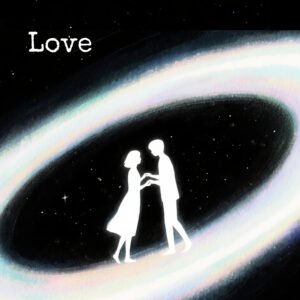In psychological astrology, Plutón stands as one of the most formidable and transformative archetypes. Co-ruling the sign of Scorpio and the Eighth House, Pluto embodies destruction, regeneration, and the evolution of consciousness. While often feared for its associations with death, loss, and endings, Pluto’s essence is not annihilation for its own sake. Rather, it is the crucible through which the soul is stripped of illusions, attachments, and outdated forms, emerging reborn and refined.
Pluto represents the hidden power within the psyche—the capacity to endure profound crises and to transform darkness into wisdom. By navigating its depths, the individual confronts shadow material, karmic imprints, and the urge for control, ultimately gaining access to a higher destiny.
The Symbol of Spiritual Transformation
Pluto’s glyph reveals its psychological function in three stages:
The Cross (foundation): The material world, the domain of incarnation.
The Arc (transition): The passage through trials, baptisms, and confrontation with higher forces.
The Circle (transcendence): The soul’s attainment of spiritual integration and rebirth.
This vertical progression illustrates Pluto’s essential mandate: to pull the individual down into the depths of material entanglement, force confrontation with mortality and shadow, and then, through crisis, elevate the self toward profound transformation.
Mythic Origins and Cosmic Echoes
In mythology, Pluto (Hades) was swallowed by his father Cronus, along with his siblings, and later regurgitated after Zeus rebelled. This imagery of swallowing, destruction, and release resonates with Pluto’s archetypal cycle of repression, breakdown, and rebirth.
Astrologically, Pluto’s unusual orbit and distant placement symbolize its disruptive nature. Its mythic “exile” mirrors its astrological function: to displace us from comfort zones, shatter illusions, and propel us into radical transformation. In this sense, Pluto is the celestial dramatization of life’s inevitability: what is destroyed must be reborn in a new form.
Pluto’s Unusual Place in the System
Unlike the personal planets, which deal with instinct and identity, or the social planets, which regulate community and law, Pluto belongs to the outer transpersonal forces. Yet, paradoxically, it acts in a deeply personal way. Its influence manifests through profound crises—loss of power, confrontations with mortality, betrayal, destruction of wealth or security.
Pluto is small, distant, and eccentric in orbit, yet its psychological impact is immense. It reminds us that size and visibility are irrelevant to power; the most hidden energies are often the most transformative.
Pluto and Juno: Partners in Scorpio
Psychological astrology pairs Pluto with Juno in co-ruling Scorpio and the Eighth House. Both archetypes confront us with attachment, intimacy, and transformation, but they function at different levels:
Juno: Marriage, contracts, jealousy, and the struggles of the personal self within relational structures.
Plutón: Power, hidden resources, death, and profound transformation beyond personal conflicts.
If Juno represents the turbulence of intimate bonds, Pluto represents the deeper crucible of existence—the dismantling of ego and the surrender to forces larger than the self. Juno’s struggles are interpersonal; Pluto’s battles are existential.
The Mid-Life Crucible and Destiny
Pluto’s influence is most apparent during moments of crisis—particularly the mid-life crisis, when long-suppressed issues erupt, forcing confrontation with mortality, purpose, and authenticity.
Pluto does not simply dismantle for the sake of chaos. Its role is initiatory: to strip away the false self so that the individual can awaken to destiny. Through the cycle of death and rebirth, Pluto pushes us past the possessiveness and obsession of Scorpio into the expansive wisdom of Sagittarius.
This makes Pluto not just a planet of endings but a gateway to destiny. Those who pass through its trials emerge with profound psychological strength, clarity, and alignment with a deeper purpose.
The Psychological Lesson of Pluto
Pluto symbolizes the confrontation with power—both external and internal. It demands that we face control issues, survival fears, and our own destructive tendencies. It shows that clinging to the “small self” leads to obsession and stagnation, while surrendering to transformation opens the path to higher wisdom.
In essence, Pluto asks for death—not necessarily physical death, but the death of ego, illusion, and fear. Its gift is rebirth: the possibility of living from the true self, aligned with destiny rather than with control or resistance.



